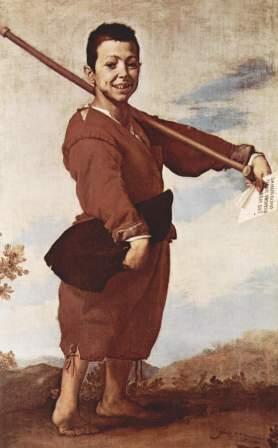Club foot historical perspective
|
Club foot Microchapters |
|
Diagnosis |
|---|
|
Treatment |
|
Case Studies |
|
Club foot historical perspective On the Web |
|
American Roentgen Ray Society Images of Club foot historical perspective |
|
Risk calculators and risk factors for Club foot historical perspective |
Editor-In-Chief: C. Michael Gibson, M.S., M.D. [1]
Historical perspective
Famous people

Many notable people have been born with club foot, including the Roman emperor Claudius, the poet Lord Byron, statesman Prince Talleyrand, Civil War politician Thaddeus Stevens, the comedian Damon Wayans, actors Gary Burghoff and Dudley Moore, footballer Steven Gerrard, and film director David Lynch.
Kristi Yamaguchi was reportedly born with a club foot, and went on to win figure skating gold in 1992. Soccer star Mia Hamm was born with the condition. Baseball pitcher Larry Sherry was born with club feet, as was pitcher Jim Mecir, and both enjoyed long and successful careers. Pittsburgh Pirates infielder Freddy Sanchez cites his ability to overcome the defect as a reason for his success [1].
Dallas Cowboys quarterback Troy Aikman also overcame the condition en route to a Pro Football Hall of Fame career.
Josef Goebbels, the notorious Nazi propaganda minister, had a right club foot (possibly incurred after birth as a complication of osteomyelitis)[2], a fact hidden from the German public by censorship. Because of this malformation, Goebbels needed to wear a leg brace. That, plus his short stature, led to his rejection for military service in World War I.
In literature
The main character, Philip Carey, in W. Somerset Maugham's novel Of Human Bondage, has a club foot, a central theme in the work.
Hippolyte Tautain, the stable man at the Lion D'Or public house in Gustave Flaubert's novel Madame Bovary is unsuccessfully treated for clubfoot by Charles Bovary, leading to the eventual amputation of his leg.
Charlie Wilcox, the main character in the novel Charlie Wilcox by Sharon McKay had a club foot.
In Yukio Mishima's seminal novel The Temple of the Golden Pavilion the character Kashiwagi has club feet which parallels the stutter of the main character, Mizoguchi.
In the Mallorean, Senji the sorcerer has a club foot.
In Caroline Lawrence's Roman Mysteries series, a character called Vulcan the blacksmith appears in the book "The Secrets of Vesuvius". He reveals that he gained the nickname because of his club foot.
References
- ↑ Freddy or not, here comes last leg of batting race
- ↑ Goebbels is commonly said to have had club foot (talipes equinovarus), a congenital condition. But William L. Shirer, who spent the 1930s in Berlin as a journalist and was acquainted with Goebbels, wrote in The Rise and Fall of the Third Reich (Simon and Schuster 1960) that the deformity arose from a childhood attack of osteomyelitis and a botched operation to correct it. Osteomyelitis, an infection within the bone marrow, can cause the destruction of one or more of the growing points in the long bones of the leg, a condition known as septic osteoblastic dysgenesis. This will result in a shortened leg.